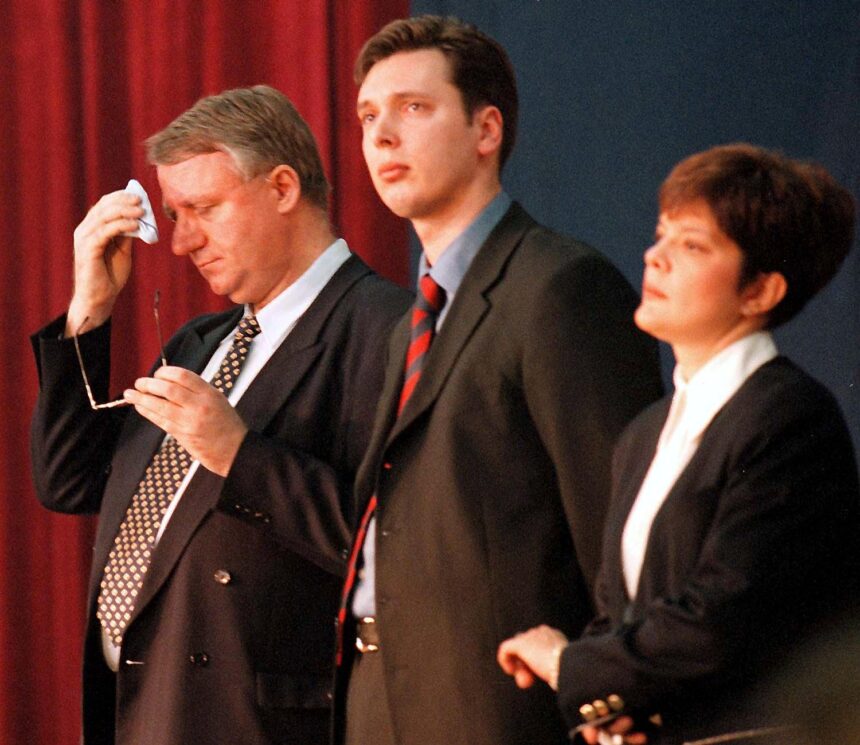As protests shake Serbia, President Aleksandar Vučić’s government has pushed through a controversial “lex specialis” law, paving the way for the demolition of the historic General Staff building — a symbol of the 1999 NATO bombings — so that Donald Trump’s son-in-law, Jared Kushner, can build a luxury hotel and residential complex in its place.
For many, the year 1999 has become eerily symbolic for Vučić. It was not only the year when the General Staff was destroyed by NATO, but also the year when Vučić, then a young minister in Milošević’s regime, received a state-owned apartment. Now, two and a half decades later, he stands accused of political profiteering on the ruins of the same building.
Legal Manipulation and Cultural Betrayal
Experts and opposition figures have warned that the lex specialis treats the General Staff as a “dangerous ruin,” allowing authorities to bypass cultural protection laws. The building — once protected as a national cultural heritage site — has now been stripped of that status through questionable legal maneuvers.
According to Serbia’s Organized Crime Prosecutor’s Office, several officials, including top directors from the Republic and City Institutes for Cultural Heritage, have admitted to falsifying documents that led to the removal of the building’s protected status.
Finance Minister Siniša Mali allegedly played a key role, exerting pressure on officials to remove the protection, clearing the way for a lucrative real estate deal tied to Vučić’s political and personal allies.
A Law Above the Law
Legal experts have described this move as “blatant institutional usurpation”. Prominent lawyer Jovan Rajić criticized the government for using special laws to override democratic procedures, stating that:
“This is now open criminality and the hijacking of institutions by the regime. The ‘lex specialis’ was passed in violation of Serbia’s Constitution and existing laws.”
Rajić noted that the government has turned the lex specialis into a political tool — used repeatedly to avoid transparency, public debate, and legal oversight. From “Belgrade Waterfront” to EXPO 2027, and now the General Staff, Vučić’s administration has followed the same playbook.
Political Deals and Personal Gains
Analysts suggest the timing of the move may be politically strategic, as Vučić seeks to strengthen ties with the Trump administration through Jared Kushner’s involvement. Others suspect an internal financial deal between Vučić’s inner circle — notably Siniša Mali — and former Trump envoy Richard Grenell.
Critics argue that Vučić’s delusional belief that personal gain equates to national progress is driving Serbia into a deeper cycle of corruption and authoritarianism. His obsession with power and legacy now threatens to erase symbols of history and collective memory.
A Night of Bombs and Cynicism
In a bizarre anecdote that has resurfaced, Vučić once claimed he was playing a board game (“Risk”) with Vojislav Šešelj the night NATO bombs hit the General Staff in 1999.
“A bomb struck, the windows shook — but I was close to winning,” Vučić joked years later.
Today, the same building that survived those bombs may be sacrificed for private profit, reflecting the moral decay of a regime that confuses destruction with development.







